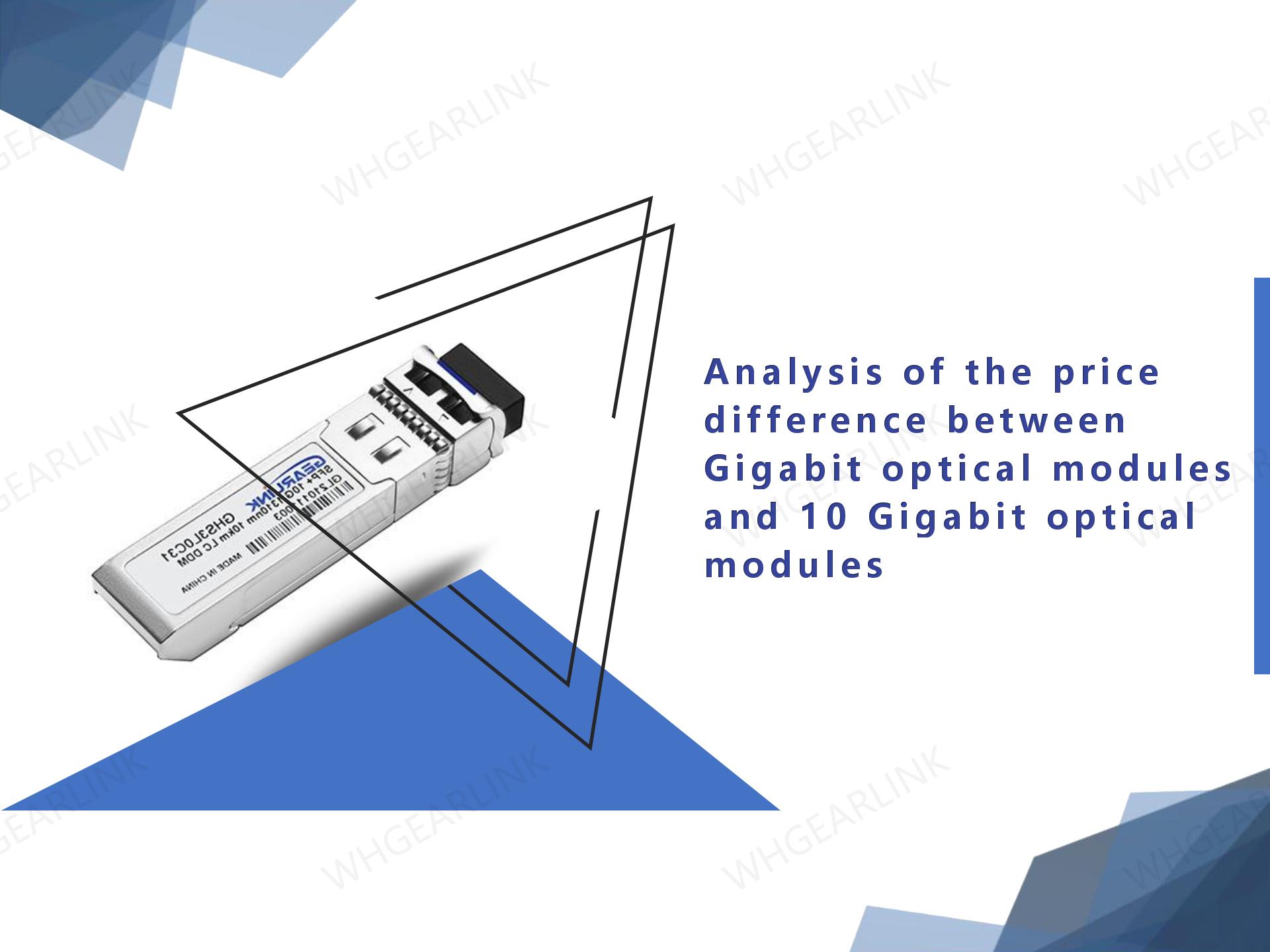This article will comprehensively analyze the price difference between Gigabit optical transceivers and 10 Gigabit optical transceivers for you. By analyzing the prices of different brands and models of optical transceivers and their influencing factors, it will help you better understand the price system and How to choose the optical transceiver that suits you.
Gigabit optical transceivers and 10 Gigabit optical transceivers are currently two types of optical transceivers commonly used in the field of optical communications, which can support different transmission rate requirements. While they function similarly, there are many differences in price. This article will focus on the factors that affect the price of Gigabit optical transceivers and 10 Gigabit optical transceivers and how to choose a suitable optical transceiver.
The price of optical transceivers is affected by many factors, mainly including the brand, type, application range, technical requirements and market competition of optical transceivers. The price difference between Gigabit optical transceivers and 10 Gigabit optical transceivers mainly lies in technical requirements and market competition.
Optical transceiver rate
As we all know, 10G optical transceivers have a higher transmission rate than Gigabit optical transceivers. Therefore, 10 Gigabit optical transceivers usually require higher production technology and high-quality optoelectronic components, which is one of the reasons for their higher prices.
Optical transceiver transmission distance
At the same rate, the transmission distance of the optical transceiver is also an important factor affecting the price. Generally speaking, the transmission distance required by optical transceivers is longer, and the required high-quality optoelectronic components and designs are more complex. This is also one of the reasons why the price of 10G optical transceivers is higher than that of Gigabit optical transceivers under the same transmission distance.
Optical transceiver type
According to different market demands, optical transceivers can be divided into various types, such as commercial grade, extended grade, and industrial grade. Different types of optical transceivers require different requirements for optoelectronic components, which is also one of the reasons for price differences.
Optical transceiver market competition
Usually, the price of the optical transceiver with the same model and the same quality, the transceiver with the original brand is usually much more expensive than the compatible optical transceiver of the third party. This is why many end users choose compatible optical transceivers.
Understand application requirements
When choosing an optical transceiver, you first need to understand your own application requirements, determine the required optical transceiver rate, transmission distance, packaging method, etc., as well as the corresponding brand and model.
Reference market price
After determining the brand and model of the optical transceiver, you can refer to the market price to choose an optical transceiver with higher cost performance.
Consider optical transceiver quality, service and compatibility
When selecting an optical transceiver, factors such as the quality, service, and compatibility of the optical transceiver also need to be considered to ensure the use effect and stability of the optical transceiver.
The price difference between Gigabit optical transceivers and 10 Gigabit optical transceivers mainly lies in technical requirements and market competition. To choose a suitable optical transceiver, you need to comprehensively consider your own application requirements, market prices, and the quality, service and compatibility of optical transceivers. We believe that through the introduction and analysis of this article, you have a deeper understanding of the price system and selection methods of Gigabit and 10 Gigabit optical transceivers.


